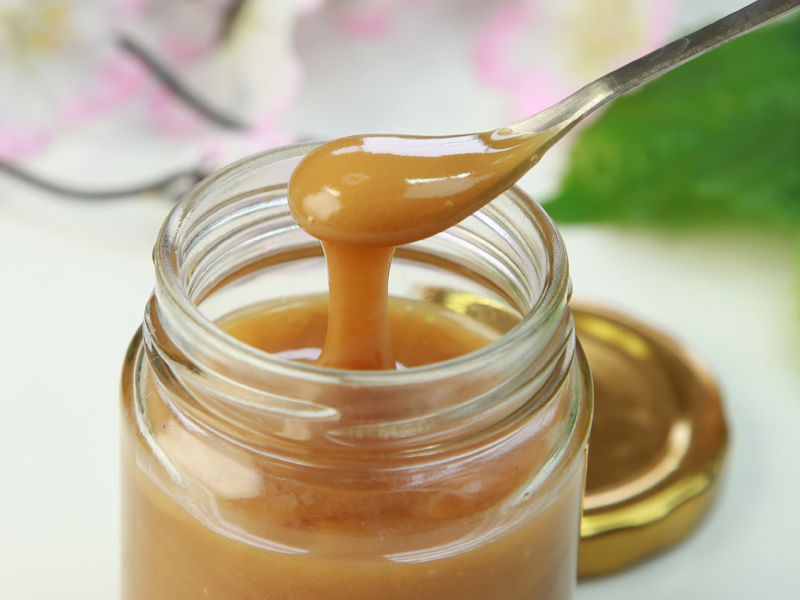Get Easy Health Digest™ in your inbox and don’t miss a thing when you subscribe today. Plus, get the free bonus report, Mother Nature’s Tips, Tricks and Remedies for Cholesterol, Blood Pressure & Blood Sugar as my way of saying welcome to the community!
Manuka honey for chronic bladder infections

Dealing with chronic urinary tract infections is more than a pain in the butt. It’s a pain in the bladder and potentially the kidneys if you don’t get it under control quickly.
And right now, the only solution your doctor can offer you is antibiotics. But there’s a big problem with antibiotics you’ve probably heard about…
People are becoming resistant to them. Especially the antibiotics used to treat bladder infections because they’ve been prescribed so frequently for so long.
In fact, it’s been determined that one of the antibiotics most commonly used to treat UTIs already has a 50 percent resistance rate. That means this antibiotic doesn’t do anything for half the people who need it.
A powerful option when antibiotics let us down
With antibiotic resistance on the rise, more and more people are turning to natural remedies to prevent and get rid of urinary tract infections. And there are a lot of natural remedies to choose from — cranberry products, D-mannose, probiotics, vitamin C and goldenseal.
But if honey is not on your list of infection-fighting natural remedies — it should be. A study published in the Journal of Clinical Pathology found that Manuka honey can help treat chronic and recurring UTIs.
In their study, researchers found that Manuka honey, which is produced by bees that pollinate the Manuka tree, native to New Zealand, can stop the growth of urinary tract-causing bacteria and prevent them from forming biofilms. Biofilms are thin layers of bacteria that adhere to your bladder and cause chronic or reoccurring bladder infections. Antibiotics typically can’t touch these biofilms because the bacteria in them are notoriously antibiotic-resistant.
I’ve put Manuka honey to the test myself plenty of times.
Last year I fell and ended up with a nasty cut on my forehead — and I promptly slathered it with Manuka honey — the best antibacterial treatment you can keep at home, I believe.
Manuka honey is renowned for its potent antibacterial properties. It’s also antiviral and antifungal. That’s because its low pH level and high sugar content create a unique effect that obstructs the growth of microbes. Manuka honey is also well-known for its effectiveness against deadly infections like MRSA that are resistant to antibiotics.
Not only did I heal quickly but I have no scar — despite my husband’s insistence that I probably would.
Manuka Honey for bladder health
If you want to see firsthand how honey can improve your bladder health, here’s one way to try it…
Combine one to two tablespoons of Manuka honey with two tablespoons of apple cider vinegar, a dash of lemon juice and warm water. You’ll end up with a tart and tasty tonic that can attack your bladder problems from three angles… because not only does Manuka honey have antibacterial abilities, but apple cider vinegar and lemon do too.
Even if you’re not prone to urinary or bladder infections, it’s not a bad idea to partake of this sweet tonic to ward off infection and boost your body’s natural healing potential.
Editor’s note: Did you know that when you take your body from acid to alkaline you can boost your energy, lose weight, soothe digestion, avoid illness and achieve wellness? Click here to discover The Alkaline Secret to Ultimate Vitality and revive your life today!
Sources:
- Emineke, et al. “Diluted honey inhibits biofilm formation: potential application in urinary catheter management?” — Journal of Clinical Pathology, 2016.
- M. Soto. “Importance of Biofilms in Urinary Tract Infections: New Therapeutic Approaches.” — Advances in Biology, 2014.
- D. Mandal, S. Mandal. “Honey: its medicinal property and antibacterial activity.” — Asian Pacific Journal of Tropical Biomedicine, 2011 Apr; 1(2): 154–160.














